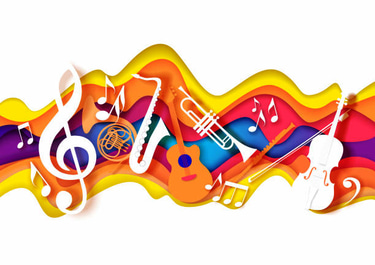The earliest period of Classical Antiquity occurs during a time of gradual resurgence of historical sources after the Late Bronze Age collapse. The 8th and 7th centuries BC are still largely proto-historical, with the earliest Greek alphabetic inscriptions appearing during the first half of the 8th century. The legendary poet Homer is usually assumed to have lived during the 8th or 7th century BC, and his lifetime is often considered as the beginning of classical antiquity. During the same period is the traditional date for the establishment of the Ancient Olympic Games, in 776 BC. The earliest known complete musical notation is the Seikilos epitaph, a Hellenistic song from around 200 BCE inscribed on a tombstone. This shows the Greeks had developed a system for notating melodies and rhythms.
The Archaic period followed the Greek Dark Ages, and saw significant advancements in political theory, and the beginnings of democracy, philosophy, theatre, poetry, as well as the revitalization of the written language (which had been lost during the Dark Ages). Ancient Greek writers like Aristotle and Pythagoras wrote extensively about music theory, discussing concepts like modes, rhythms, and the philosophical idea of "music of the spheres.
The Archaic expansion differed from the Iron Age migrations of the Greek Dark Ages, in that it consisted of organized direction away from the originating metropolis rather than the simplistic movement of tribes, which characterised the aforementioned earlier migrations. Many Colonies that were founded during this period eventually evolved into strong Greek city-states, functioning independently of their metropolis.
The ancient Greeks are credited with establishing the foundations of Western musical notation, rhythmic concepts, scales/modes, and instruments like the lyre, aulos (reed pipes), and hydraulis (water organ). Music played an integral role in ancient Greek theater (e.g. in staging the works of Aeschylus and Greek choruses), as well as religious rituals and cultural events like the Olympic Games. In ancient Rome, Music was influenced by Greek traditions but also had distinct genres like military music and religious music used in rituals.
Organum was the name given to early polyphony (800-1250 A.D.). Simple Organum used two voice parts that sang in parallel fourths or fifths and eventually these two voices were doubled at the octave. Free Organum (11th-12th centuries) employed an expanded harmonic vocabulary, allowing perfect fourths, major and minor thirds and the major second, while fifths and semitones were avoided.
Parallel, oblique and contrary motion and crossing voices were increasingly used to obtain pleasing harmonies and to avoid the Tritone… a Tritone, in the context of music theory, refers to an augmented 4th or diminished 5th interval that spans three whole tones. It was historically known as the "diabolus in musica" (devil in music) due to its dissonant sound in medieval ecclesiastical music.
